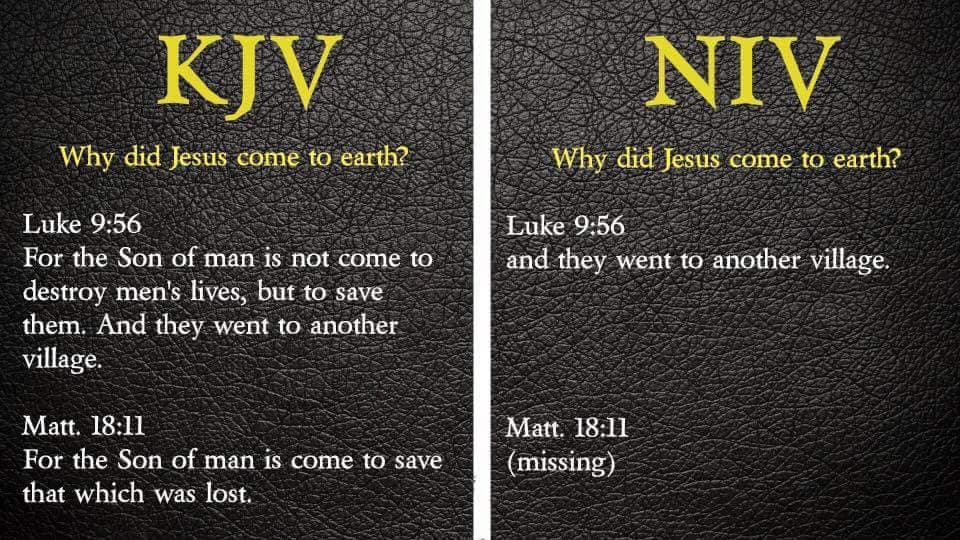The Bible is the most widely read book in the world, and its translations are numerous. However, not all translations are created equal. For many Christians, the choice between the King James Version (KJV), the New King James Version (NKJV), and the New International Version (NIV) is a significant one. This article aims to shed light on why you should consider using the KJV or NKJV Bibles over the NIV, especially when it comes to missing verses and altered text.

The King James Version (KJV): A Timeless Classic
The KJV, first published in 1611, is one of the oldest and most respected translations of the Bible. It was commissioned by King James I of England and is renowned for its majestic language and poetic beauty. The KJV has been the standard for English-speaking Christians for centuries.
Why Choose KJV?
- Textual Integrity: The KJV is based on the Textus Receptus, a Greek New Testament manuscript that has been widely accepted for its reliability.
- Theological Depth: The KJV is known for its theological richness, providing a deep understanding of God’s Word.
- Literary Excellence: The KJV’s Elizabethan English is often considered unparalleled in its poetic and literary quality.
You can buy custom NKJV and KJV bikes with your name on them at Weaver Custom Engravings

The New King James Version (NKJV): A Modern Take on a Classic
The NKJV, published in 1982, aimed to update the language of the KJV while preserving its textual integrity and theological depth.
Why Choose NKJV?
- Updated Language: The NKJV uses modern English, making it easier to understand without sacrificing the beauty of the KJV.
- Textual Reliability: Like the KJV, the NKJV is also based on the Textus Receptus, ensuring its textual integrity.
- Theological Consistency: The NKJV maintains the theological richness of the KJV, making it a reliable choice for study and devotion.
The New International Version (NIV): A Popular but Controversial Choice
The NIV, first published in 1978, is one of the most popular Bible translations today. However, it has faced criticism for various reasons.
Issues with NIV
- Missing Verses: The NIV has been criticized for omitting several verses found in the Textus Receptus, the manuscript behind the KJV and NKJV.
- Altered Text: Critics argue that the NIV takes liberties with the original text, leading to theological discrepancies.
- Textual Basis: The NIV is based on newer manuscripts that some scholars believe are less reliable than the Textus Receptus.
Why KJV or NKJV Over NIV?
- Textual Integrity: Both the KJV and NKJV are based on manuscripts that have been widely accepted for their reliability, unlike the NIV.
- Theological Depth: The KJV and NKJV offer a deeper understanding of theological concepts, which can be compromised in the NIV due to its altered text.
- Consistency: The KJV and NKJV provide a consistent translation of the Bible, making them more reliable for study and understanding God’s Word.

Choosing the right Bible translation is crucial for anyone looking to deepen their understanding of God’s Word. While the NIV may be more accessible, its missing verses and altered text make it a less reliable choice for serious study. On the other hand, the KJV and NKJV offer textual integrity, theological depth, and literary excellence, making them superior choices for those seeking a deeper understanding of the Scriptures.
By carefully considering the translation you use, you can better appreciate the richness and depth of God’s Word, drawing closer to Him in your walk of faith.
As an Amazon Associate we earn from qualifying purchases through some links in our articles.



